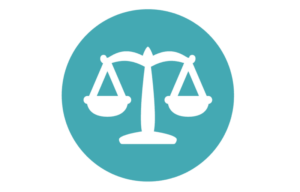Clearview AI has finally revealed its legal strategy as it tries to fend off a possible injunction in Illinois. The preliminary injunction would bar the embattled facial recognition provider from collecting and selling the biometric information of people living in the state.

David Mutnick requested the injunction back in April. He is currently acting as the plaintiff in a class action lawsuit that alleges that Clearview’s business violated Illinois’ Biometric Information Privacy Act (BIPA), and has also asked that Clearview be forced to destroy any biometric data gathered from the state’s residents.
Clearview has already suspended all of its private and public contracts in Illinois, largely as a show of good faith to argue that a formal injunction is unnecessary. However, the company is now trying to throw more legal weight into that defense. In papers filed with the U.S. District Court in Chicago, the company argues that an injunction is not just unnecessary, but is in fact unconstitutional, because it would violate the company’s first amendment right to access, use, and sell any information that is publically available online.
In that regard, Clearview is not the first company to argue that consumer privacy laws infringe on corporate freedom of speech. Internet Service Providers used a similar gambit to challenge a Maine law that stops broadband carriers from selling personal information without the explicit consent of their customers. That argument was rejected, but the judge has given the plaintiffs the opportunity to gather more evidence to make their case.
It’s unclear if that argument would benefit Clearview even if it does eventually prove to be successful. The Maine law addresses the direct relationship between the ISPs and their customers. Clearview, on the other hand, does not have such a relationship with most of the people in its database. The company scraped social media sites like Twitter and Facebook, and is now arguing that the information on another company’s website is essentially public domain that any third party can use for commercial gain without any restrictions.
That claim could be much more difficult to defend in court. Tech giants like Facebook typically assert a degree of ownership of the content on their platforms, and have terms of service that explicitly prohibit the data mining that Clearview used to build its database. Clearview has received official cease and desist orders from Google and Twitter, while Facebook has politely asked the company to stop its collection activities.
Source: Media Post
–
August 19, 2020 – by Eric Weiss




Follow Us